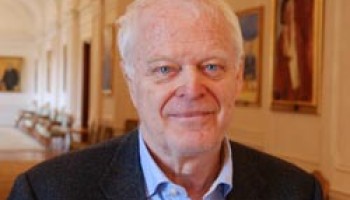The ministry said it is not eavesdropping on everybody, and has court permission to listen to the people it is listening to. It declined to say who they might be, and when, or if, the technology Ericsson installed in 2005 at the country’s internet and cell phone providers would be dismantled.
The surveillance issue has been widely discussed in Georgia. Human rights and watchdog groups have urged the MIA to remove the black boxes.
“Unlike before the parliamentary election in 2012 the Ministry does not undergo total and massive illegal monitoring of its citizens,” the MIA said in a statement. “Minister Irakli Gharibashvili is keeping his promise to eliminate the illegal surveillance. Surveillance only takes place based on court permission (for) criminal investigation purposes.”
Agence France Presse (AFP) reported Wednesday that an Ericsson spokesman told Swedish Public Radio that the company had sold the technology to Georgia in 2005 and that the Georgian government might be illegally monitoring its citizens.
“The technology is aimed at lawful monitoring to fight crime, but the (Georgian) authorities allegedly use it for purposes it is not intended for,” spokesman Fredrik Hallstan told AFP.
Transparency International Georgia claims that Georgian authorities installed the black boxes in the servers of the country’s telecom companies, allowing the government to monitor phone calls and text messages directly.
Ericsson says it sold the equipment to the Georgian cell phone company Geocell, which is a subsidiary of the Swedish-Finnish telecom TeliaSonera. The local Geocell office said in a statement that it has been in the forefront in the wake of the scandal in asking the Georgian government to strengthen laws limiting surveillance.
“Practical steps have been already done towards this direction; a committee has been created which is now working on amendments,” the statement said. “Maintenance of human rights, freedom of expression and protection of citizen’s personal information are the most important values for TeliaSonera and its local representative Geocell.”
Lasha Tugushi, a Tbilisi newspaper editor and committee member, says that the “monitoring system remains the same, nothing has been changed for the time of being, the software still remains in place.”
He said the group has proposed amendments to several areas of the law that will be discussed by the relevant committees, and hopes that a first hearing on the amendments will take place in late November.





